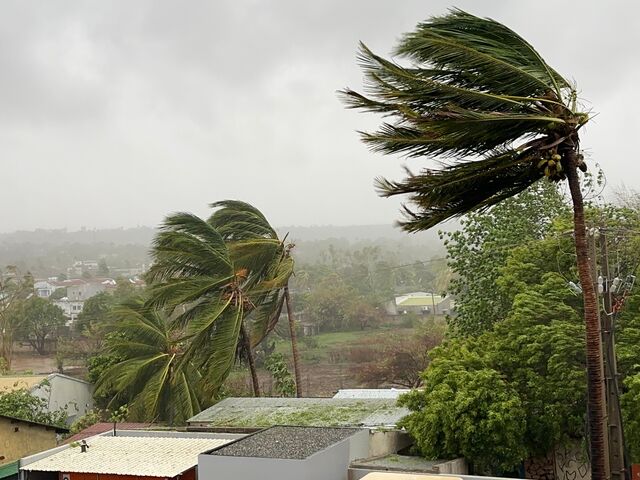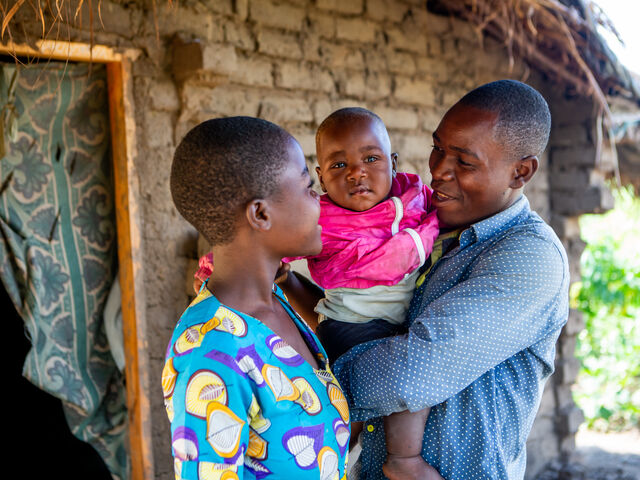In Kigoma, Tanzania, a groundbreaking initiative is taking shape through the “2gether 4 SRHR” programme. The project has empowered Young People living with HIV (YPLHIV) and Adolescents and Young People (AYPs) in Kasulu Town Council, Kasulu District Council, and Uvinza District Council by equipping them with the skills to monitor HIV, GBV, and SRHR services through community-led monitoring (CLM). CLM is a people-centered, inclusive approach that empowers service users to lead in collecting data, providing feedback, and tracking HIV service improvements. It has enabled young people to identify service barriers and use evidence to advocate for youth-led solutions with health providers and governments. This approach ensures that the services provided are accessible, friendly, and of good quality.
This initiative has empowered AYP with the knowledge and skills to advocate for youth-centered services, fostering a renewed commitment to accessible and quality HIV, GBV, and SRHR services. Engaging youth in providing feedback enhances service quality by identifying gaps and making services more accessible and youth friendly. This involvement builds trust, encourages utilization, and empowers youth, giving them a sense of ownership over their health. Feedback from the AYP beneficiaries shows increasing confidence in monitoring and engagement with health and government staff for youth friendly HIV, GBV and SRHR services. AYPs commend the support from councils and regional health management teams in addressing these challenges, ensuring AYPs can fulfill their roles effectively. UNAIDS and its partners UNICEF, UNFPA and WHO, together with the Government, will continue advocating and supporting programs that meaningfully engage and empower AYP. Ultimately, tailored services that address the specific needs of young people lead to better health outcomes, including reduced rates of HIV and GBV.

“The project has improved my knowledge on identifying challenges facing AYP when accessing HIV, GBV and SRHR services, it has also increased my confidence when engaging with health care workers and other government officials."– Mandela – project beneficiary
This confidence is crucial for encouraging more AYPs to access the services they need. With support from UNAIDS, UNFPA, UNICEF and WHO, the Network of young people living with HIV coordinates the efforts of these trained AYPs, ensuring they receive support from councils and reach out to 480 peers to document and share their feedback on the services provided. Documentation from the project reveals the 48 project beneficiaries reached 480 of their peers and 48 health staff. 97% of the 105 AYPs interviewed reported positive engagement with their peers and health care providers. Similarly, 92% of the 30 health care providers confirmed improved engagement with AYPs. Despite the project's successes, challenges remain. Misconceptions about the role of AYPs in monitoring health services and transportation issues due to the distance between wards and facilities are significant hurdles.
“The involvement of AYP in this project highlights the importance of their engagement by health staff, as it bridges the human resource gap and ensures youth-friendly service delivery in facilities". - District AIDS Control Coordinator - Kasulu Town Council
Leah a young woman living with HIV and beneficiary of this project, has demonstrated the power of youth led initiatives in transforming youth HIV, GBV and SRHR services by employing youth lead solutions. The project has empowered her to coordinate and supports her peers to engage with other peers and with regional and council health staff, while ensuring that AYP receive adequate support throughout the process of collecting and sharing feedback on HIV, GBV, and SRHR services in 12 wards across 3 councils. Leah’s committed actions have led to increased trust and support to AYP to engage in shaping delivery of HIV, GBV and SRHR services among AYP. As the project continues to engage more youth, Leah has a vision of increasing number of AYP accessing friendly services in their setting free of stigma and discrimination and improving engagement and participation of adolescents and young people in addressing barriers to access HIV, GBV and SRHR services among AYP.
The engagement with health facilities and local government staff has transformed these places into welcoming homes for AYPs, where they can regularly inquire about the quality of services provided”. Leah -Project beneficiary

The results observed through the work of Leah and many other young people who are beneficiaries of the 2gether 4 SRHR project, contribute towards the realization of Tanzania’s national goals and
targets on HIV prevention, GBV prevention and SRHR among AYP. Sweden’s financial support significantly enhances these initiatives,
allowing Leah and other young people to reach to more adolescents, and young people. This support helps to foster a supportive environment for young people to seek help, make informed health decisions, including around HIV and GBV prevention. By investing in this project, Sweden directly contributes to creating a healthier, more empowered generation.
“Meaningful youth engagement in HIV programming is crucial. It not only empowers young people to take charge of their health but also ensures that services are tailored to their unique needs. By involving youth in monitoring the services we bridge gaps in service delivery and foster a generation that is informed, resilient, and proactive in the fight against HIV”. - Martin Odiit - UNAIDS Country Director for Tanzania
Written by: Grace Mallya, UNAIDS Equality and Rights Adviser





